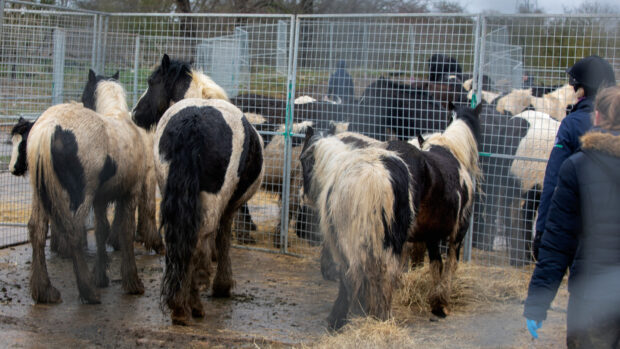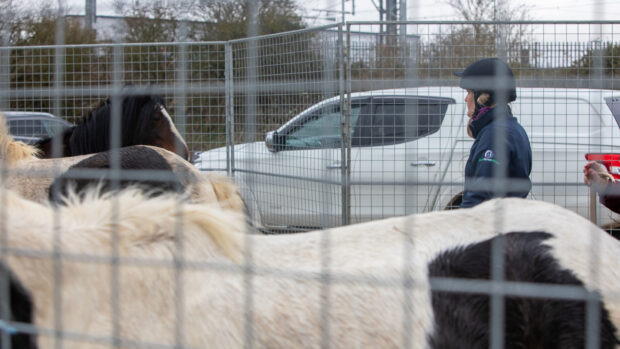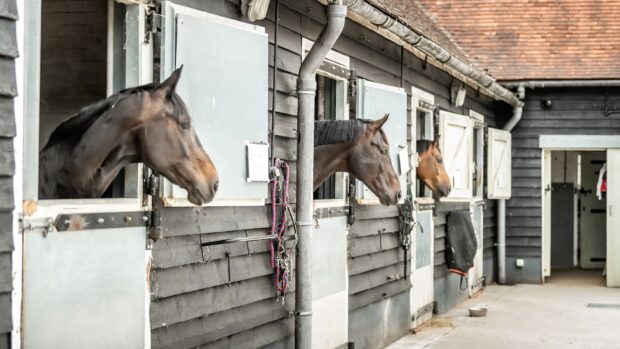“WHOSE opinion matters?” was the theme of the 2021 World Horse Welfare conference, as experts looked into how best to spread the right word on all aspects of equine welfare.
Delegates at the hybrid event, in London and broadcast online on 11 November, heard presentations on the importance of science-based evidence in animal health and welfare, the power of opinion and the role of the media, both social and mainstream.
Panel members discussed the various challenges involved in getting the right messages out, in answer to questions asked by members of the audience.
Among the attendees was Camie Heleski, who teaches equine science and management at the University of Kentucky and is actively involved with the International Society for Equitation Science. Asked whether, as welfare can be seen as “shades of grey, and science as black and white, should science ever be disregarded?”, Dr Heleski said she has worked on a paper looking at “when science is not enough”.
“There are times when science doesn’t tell us the whole picture, and you need to add the ethical assessment,” she said. “You look at the evidence but sometimes it’s also what you feel in your heart; this doesn’t feel fair for this horse, though I don’t necessarily have the science to document it yet. I see some practices in the warm-up at shows and we don’t necessarily have the science to say a practice is super-wrong but ethically, you can see it’s not fair for the horse. So there are times science doesn’t give us the full answer and we have to bring in an ethical assessment.”
MP and former vet Neil Hudson said he believes making evidence-based decisions is important, and “science has to be the platform for that”, but that “we shouldn’t be afraid to critique the science”, so papers have to be peer-reviewed and evaluated.
“But as a vet, if the treatment protocol isn’t working, you have to be prepared to change it; in all walks of life, you have to be prepared to change your mind,” he added. “That’s not a weakness, it can be a strength. We should have science as a basis but not be afraid to change our minds.”
Vet and World Horse Welfare trustee Chris Tufnell agreed, citing the need to evaluate scientific fact and the danger of correlating what is done with what is seen.
“There’s a website on spurious correlations, where you’ll see consumption of cheese in the US is finely correlated with deaths from entanglement in bed sheets,” he said. “A lot of my clients will correlate what they’re seeing and doing and assume the magic turning the horse to the moon every night is curing the problem. It’s a challenge but it’s a communication challenge.
“It’s not easy and sometimes you’re best to go schtumm when you’re asked your opinion on some things. I’ve found challenging Russian healing blankets is often not healthy when it comes to keeping clients.”
Asked how people can be encouraged to seek views beyond our own “echo chambers” and be more open to change, Mr Tufnell said this is a challenge, and spending less time on “anti-social media” may help.
“I’ve always wanted to put on the bottom of posts on social media ‘I think you’ll find it’s more complicated than that’, because it would apply to almost every post,” he said, adding that setting examples of listening to the right people, and paying for facts and opinions will help.
He said the industry should also show that collaboration gets results; citing examples of back-bench politicians working together and adding that polarisation is “toxic and childish”.
Dr Hudson said he had used social media as a vet but “nothing prepared me for being an MP and the vitriol you get on social media”.
“It’s a dreadful world and I wish we had more respect and tolerance; we need to listen to people,” he said. “I’m the only vet in the Commons and that’s a lonely place but animal welfare is something that unites us in humanity.
“It’s so important to build bridges and I think animal welfare is an area we can do that.”
Asked how to keep equine welfare on the agendas of policymakers, enforcers and the public, Dr Hudson said his advice was to “keep banging on about it”.
“Keep repeating yourself,” he said. “I keep banging on about animal welfare issues in the Commons and am getting a reputation for being repetitive but you have to sometimes repeat yourself to get traction; if something’s important, keep saying it.”
Mr Tufnell agreed, adding that in a “very noisy world, we need to look for the ‘Oi’ in every story”, to gain attention.
“On enforcement agencies, they’re often stretched so it’s about helping them understand the importance of equine welfare, as it’s often tightly entwined with human welfare,” he said. “Dealing with equine welfare issues will help humans but also helping them do their job; if we can help them by doing some of the job, we can make it easier.
As far as the public is concerned, he said the horse world is good at “preaching to the converted”, and that at the other end of the spectrum there are anti-riding activists who will not be convinced otherwise, but the people in the middle can be reached.
“If we can keep at them and keep providing information; humorous, entertaining and informative, that’ll keep them engaged,” he said.
You might also be interested in:

Priorities, clear communication and consensus key to better equine welfare

Industry must stay one jump ahead in a changing world *H&H Plus*
A panel of experts discussed the benefits to horses in their partnership with humans. H&H brings you their thoughts on

What’s in it for them? Owners urged to question everything to give horses the best possible lives
“None of these shortcomings are made up for by our horses’ having expensive tack or being immaculately turned out”

Subscribe to Horse & Hound magazine today – and enjoy unlimited website access all year round
Horse & Hound magazine, out every Thursday, is packed with all the latest news and reports, as well as interviews, specials, nostalgia, vet and training advice. Find how you can enjoy the magazine delivered to your door every week, plus options to upgrade your subscription to access our online service that brings you breaking news and reports as well as other benefits.




